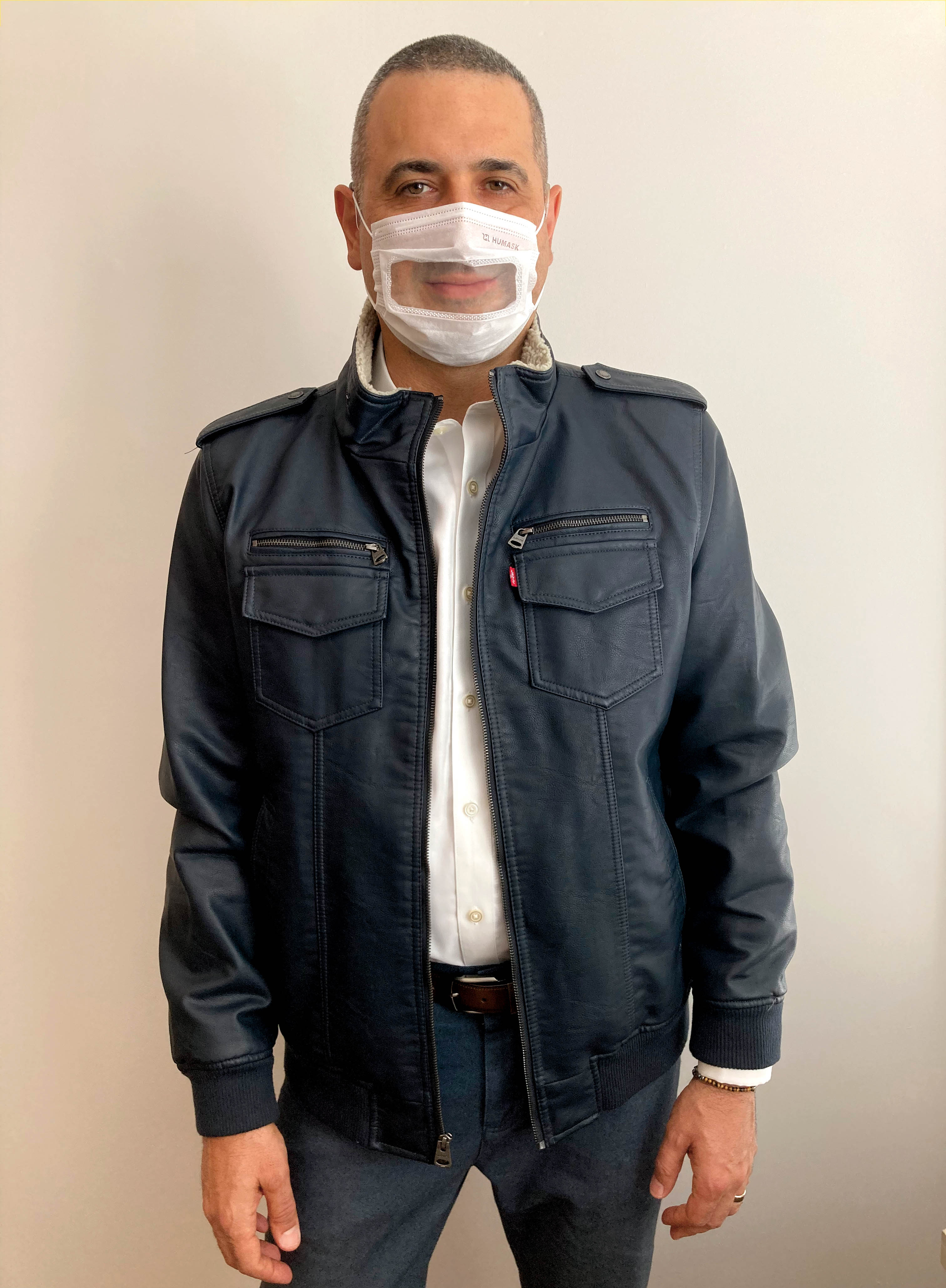Share this page

By Laura Bickle
Photo: Maria Tatangelo, OCT
Exchanging emails for this story would have been much easier for Angelo Tocco, OCT. Instead, he requested a Zoom call so he could illustrate the technical challenges of communicating with hearing loss, and demonstrate how to use a TTY relay service. Finding opportunities to build awareness is part of Tocco's strategy to advance accessibility for people with disabilities, including himself and the students he serves as a Special Education teacher at Dante Alighieri Academy Catholic Secondary School in Toronto.
Tocco is currently seconded to the College's Standards of Practice and Education (SP&E) unit. He is also on numerous accessibility committees including the Kindergarten to Grade 12 (K–12) Education Standards Development Committee under the Accessibility for Ontarians with Disabilities Act (AODA) and the York Region Accessibility Advisory Committee.
"Through my community participation I am helping to break down accessibility barriers and create awareness and understanding, especially in the education sector, to help achieve Ontario's collective efforts to advance accessibility."
We asked Tocco to share how these experiences have influenced his professional learning.
It provides me with an opportunity to advocate for impactful and meaningful change, which ultimately benefits my students, colleagues and society. It makes me feel happier, healthier and more confident and motivated, all of which help me in my role as a teacher.
I have also expanded my network and made lifelong friendships. And it works both ways: A committee member who trains new teachers asked me to speak to teacher candidates so they can learn from my expertise and lived experience.
You have to always remain respectful and find ways to establish meaningful, positive connections. For example, the main forms of accessibility I rely on are live captioning and speech-to-text technologies. The best way is to educate people is by walking them through how to use the technology, such as TTY or IP relay service. They can see how it works, its challenges and why accessibility is so important.
In my work with the Education Standards Development Committee (ESDC), and in collaboration with other committee members, I addressed how to overcome accessibility barriers presented by COVID-19 (such as clear masks and captions on videos). This led to us developing recommendations and providing our advice to the Ontario government. (You can read the report at oct-oeeo.ca/BarriersReport.)
Community involvement improves skills such as task management, relationship building, organization, ethical leadership, research and collaboration — all of which have a positive impact on the classroom.
It gives you an opportunity to learn from the expertise of other professionals — and others get to learn from your knowledge and insights. I have more appreciation of how the government works, for the amount of work that is being done behind the scenes at the government level, and what other professionals do. It has helped to break down unconscious biases I may have had.
Ask yourself: Do you have the time, are you willing to put in the additional time, and are you doing this unconditionally? If you answered yes to all three, my advice is to invest your time and skills in an area you are passionate and care deeply about. Finally, before getting involved, be sure you have the support from those closest to you.